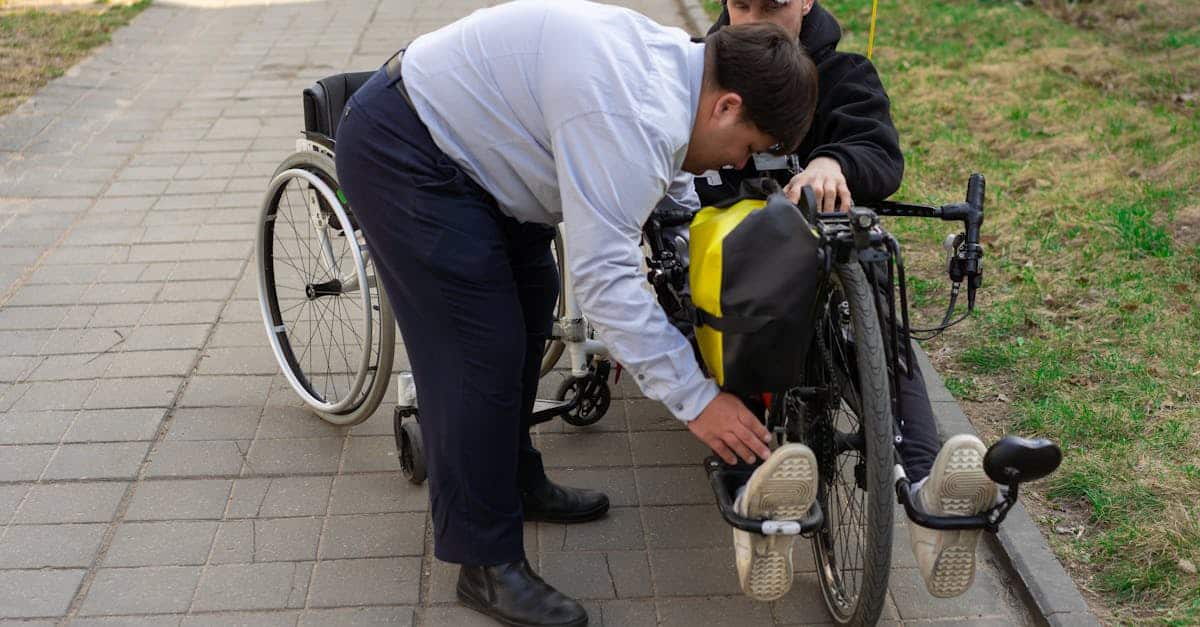The regulations concerning electric bikes in France aims to regulate their use while ensuring the safety of users and pedestrians. In fact, the legislation requires that the assistance of electric motor automatically cuts off at 25 km/h, ensuring that these bikes do not develop excessive speeds. Furthermore, theapproval electrically assisted bicycles (VAE) according to the standard NF EN 15194 is required to ensure their compliance with safety standards. Furthermore, the local communities must adapt infrastructures to accommodate this new category of vehicles, thus influencing the development of public spaces and road regulations. As travel authorizations on certain routes become more diverse, users must also familiarize themselves with new insurance and liability obligations. These developments aim to create a secure and harmonious framework foruse of electric bikes In France.

In France, the rise of electric bikes prompted the adoption of new regulations aimed at regulating their use. These legislative measures impact both users and the entire cycling ecosystem. This article looks at the different implications of e-bike legislation, from safety to road liability to encouraging their use.
Speed limits and user safety
The legislation imposes a crucial limitation: the engine assistance must be cut off as soon as the speed exceeds the 25 km/h. This measure aims to avoid accidents and guarantee the safety of road users. road. Indeed, an electric bicycle can reach higher speeds than traditional bicycles, thus increasing the risk of accidents. By regulating this speed, the authorities seek to protect cyclists while preserving pedestrians and other road users.
Certification and compliance
The process ofapproval electrically assisted bicycles (VAE) is also regulated by legislation. According to the standard NF EN 15194, electric bikes must meet rigorous safety criteria. This means that each model must pass tests to ensure compliance, which reinforces the feeling of security among users. Approval also allows non-compliant models to be eliminated from the market, thus contributing to a safer environment for all.
Legal framework and responsibilities
With the increase of electric bikes on French roads, legal questions are emerging. For example, it is necessary to clarify whether an electric bicycle requires insurance specific. Although it is not mandatory for all users, some experts strongly recommend taking out insurance to cover possible accidents. This helps protect both the user and third parties in the event of damage caused.
Development of public spaces
Local authorities must also take into account the regulations in terms of urban planning. The increase in the number of electric bicycles calls for rethinking the configuration of public spaces. Policies should include suitable infrastructure, such as safe cycle paths, to reduce conflicts between different types of transport. Legislation thus encourages municipalities to invest in the development of efficient cycle networks, promoting the use of electric bicycles.
Promotion of the use of electric bicycles
Faced with changing legislation, officials and local governments are starting to promote the adoption of electric bikes through financial aid. Tax reductions and purchase subsidies are encouraging more and more French people to opt for this transport solution. Furthermore, these measures aim not only to facilitate the acquisition of bicycles, but also to promote more mobility. ecological and sustainable in the country.
Compliance with environmental standards
The regulations governing the use of electric bicycles are also influenced by the growing need to respect environmental standards. The use of electric bicycles helps reduce carbon emissions CO2 and improve air quality in cities. Legislative initiatives therefore encourage more environmentally friendly behavior, thus strengthening the positioning of electric bicycles as a viable alternative to polluting transport.
- Security : Strict regulations ensure safer use of e-bikes on the road.
- Maximum speed: Assistance cuts off at 25 km/h, which reduces the risk of accidents.
- Approval: Obligation to approve VAEs according to the standard NF EN 15194 to ensure their compliance.
- Public spaces: Redevelopments necessary to integrate electric bikes safely.
- Road access: Lawns and sidewalks prohibited, reserving cycle paths for electric bikes.
- Financial aid: Purchase incentives to promote the use of electric bikes.
- Insurance: Obligation to take out insurance for certain models of electric bikes.
- Child users: Restrictions on the use of electric bikes by young cyclists.
FAQ on the impacts of the legislation on the use of electric bikes in France
What is the main objective of the legislation on electric bikes in France? The legislation aims to protect the rights of users while taking into account the specificities of electrically assisted bicycles (EABs).
What are the speed limits for electric bikes? The assistance of the electric motor must cut off automatically when the speed reaches 25 km/h, thus ensuring the safety of users.
Do electric bikes require approval? Yes, approval is required to certify that the electric bike complies with safety standards, in particular according to the NF EN 15194 standard.
Can an electric bike be used on sidewalks? No, the use of sidewalks is prohibited for electric bikes. They must ride on cycle paths or on the road.
Do electric bikes need to be registered? In general, electric bikes do not need to be registered, unless they exceed a certain power or speed.
What is the economic impact of the use of electric bikes in France? The economic benefits of cycling practices are estimated at 9.6 billion euros per year, creating nearly 80,000 jobs.
What is the responsibility of local authorities in the face of the increase in electric bikes? Local authorities must adapt the development of public spaces to accommodate this increase, by creating cycle paths and other suitable infrastructure.
Are electric bikes subject to insurance rules? Although it is not mandatory, it is highly recommended to take out insurance to cover possible accidents and thefts.
How do regulations influence the use of electric bicycles? Regulations guarantee a certain level of safety for users and provide for specific conditions of use, thus contributing to better coexistence with other road users.